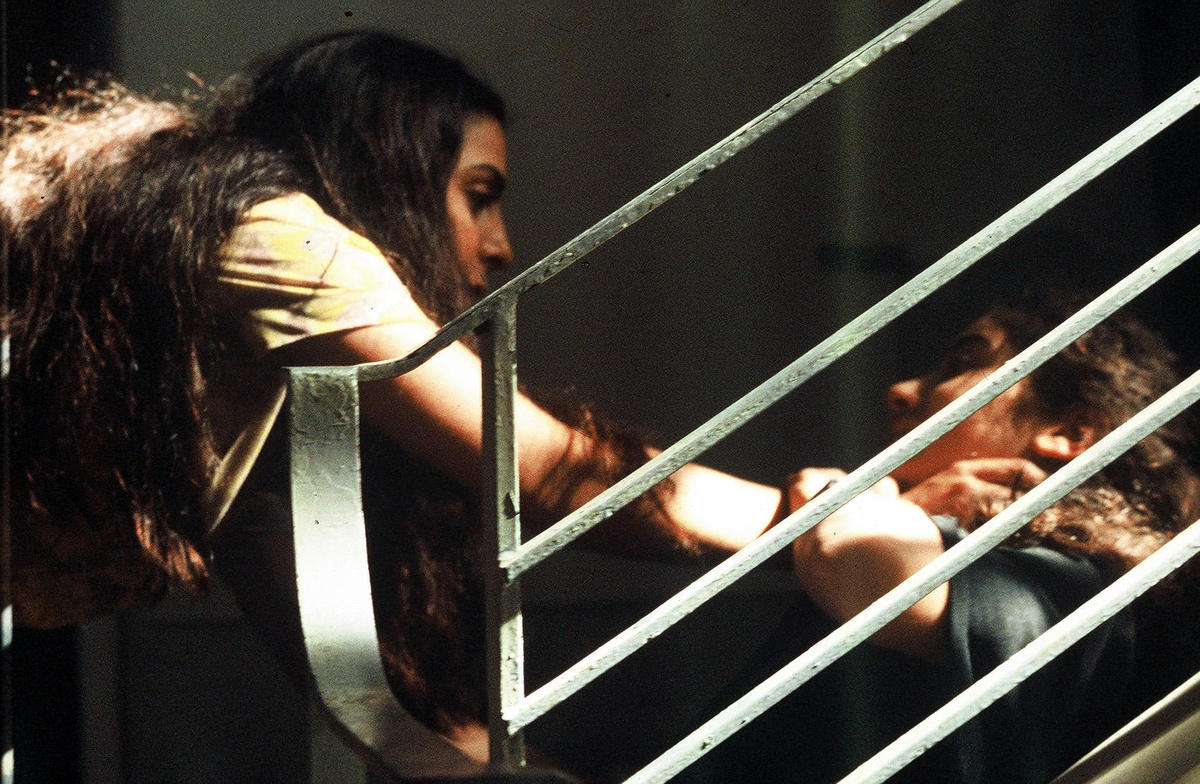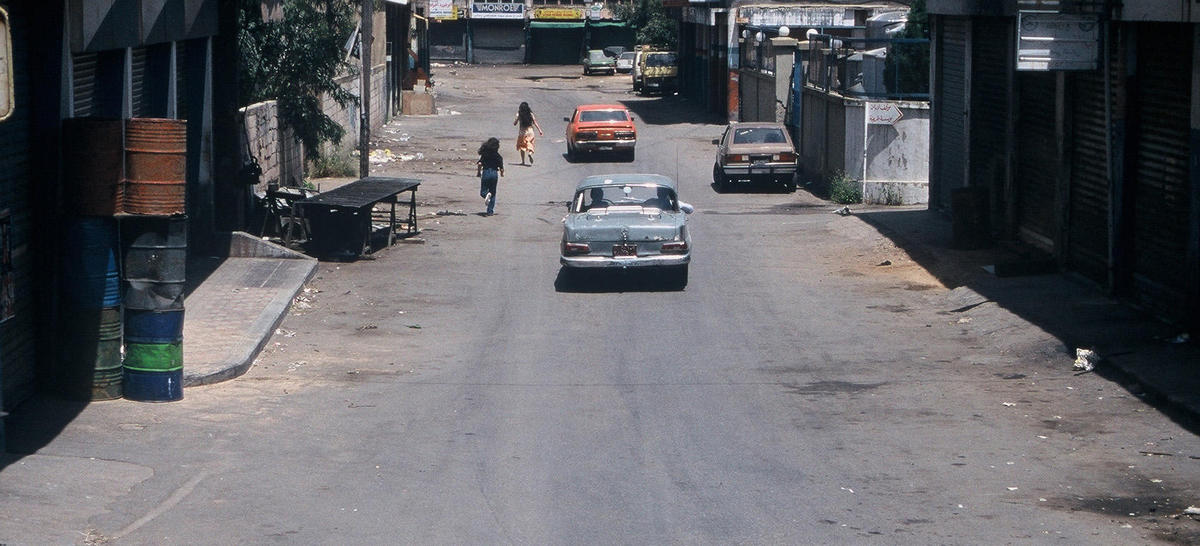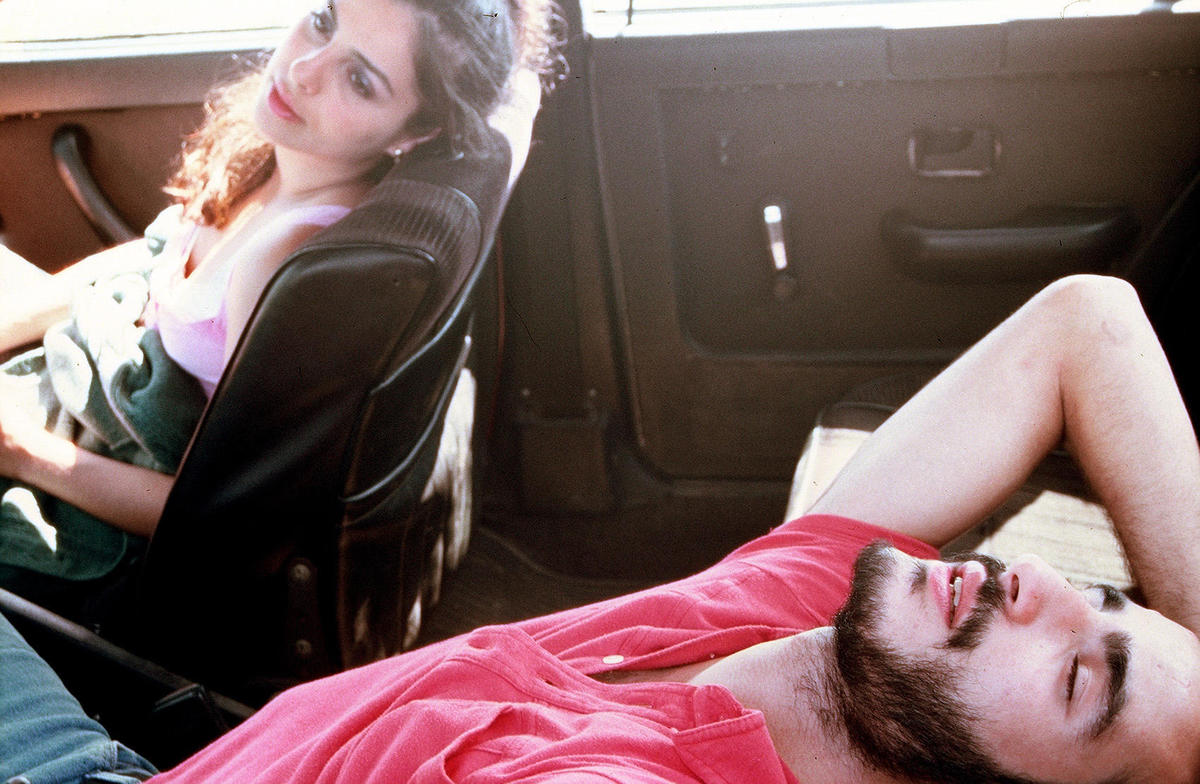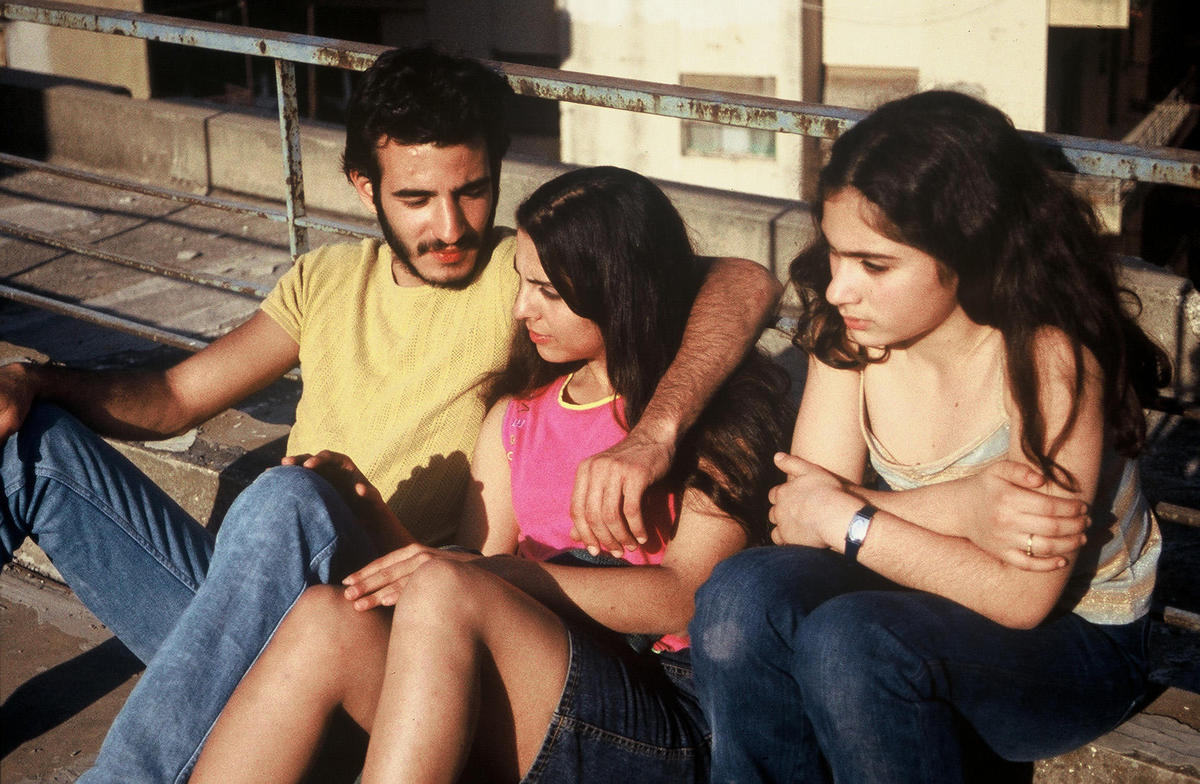
Maarek Hob (Dans les Champs de Bataille/In the Battlefields) marks the feature film debut of Danielle Arbid. Telling the story of a besieged Christian family in East Beirut during the Lebanese civil war, the film centers on twelve-year-old Lina and her friendship with her free-spirited aunt’s maid, Siham. Coming from a documentary background, which includes On The Borders, a depiction of life on the border between Israel and Lebanon, Arbid’s cinematography is notable for its naturalistic style. Natural sunlight often refracts the growing distances between the characters in the film, and the frequent sex scenes are shot with a close-up, breathless intensity. The film was awarded the Grand Prix at this year’s Biennale des Cinémas Arabes in Paris. We caught up with Arbid at the Cannes Film Festival, where Maarek Hob — included in the Critics’ Week selection — had its debut.

Bidoun: How did the premise of the film materialize?
Danielle Arbid: The story was with me. It’s not just a story. It’s also feelings and emotions. There are autobiographical elements to the film. I don’t want to say what is true and what is fiction because it’s cinema. I’m not making a documentary about my life.
Bidoun: The film is set during the Lebanese civil war. How much did the war personally influence and affect your life?
DA: As all Lebanese who lived in Beirut during the war, or in Lebanon during the period 1975-90, we were touched by the civil war. We lived in it and we somehow accepted it as normal life. It lasted fifteen years, so everyone in Beirut who got married during the war, or had children during the war, will tell you that life continued. That is why it is very important to show the war not as an exotic thing, but just as one way of living life. When I was a kid I used to think this was normal, that the whole world lived in war. I didn’t know what peace was. We are human beings and we accept and adapt. Otherwise we will kill ourselves. So here the war also becomes a metaphor about the interior war between people that live in this family. This interior war is much more cruel and tough than the war outside. The war outside is waged against everybody. There’s a justice to it. The war inside is only waged against the girls. This is how I lived it.
Bidoun: The film is very focused on women. How much did you want to show the condition of women in Lebanon, particularly during this period?
DA: You’re right. But I’m not a feminist and I’m not political. I believe in the individual not in the group. I believe in the “I”, not in the “we”. I didn’t want to show only the women as cruel or tough but the whole of society. Everybody in the film is bad and good. I believe in this as a human being. There’s not white or black, we have both of those elements in us.
Bidoun: How difficult is it for you as a woman director to work in the Middle East? Have you encountered any specific problems or prejudices?
DA: On the contrary. Being a woman helps me a lot because you have the seduction thing and I use it a great deal. I love to be a woman and make films. Whether you are a woman or a man if you want to do what you want to do then you just have to do it, in the Arab world or outside.
Bidoun: How conscious were you of Ziad Doueiri’s West Beirut when making In the Battlefields?
DA: I was with Ziad when he chose the title of his film. I chose the title with him. We are friends. I love Ziad’s movie and I love Ghassan Salhab’s movie Terra Incognita. They are my friends. Ziad opened the door for us. He gave the Lebanese an image of themselves in the cinema. I was encouraged by his experience but my film is very different. He likes to make comic scenes but I don’t know how to do these. It’s not my interest. I’m into drama.
Bidoun: Did you set out to make East Beirut’s answer to West Beirut?
DA: No. If I were a Muslim then I would have focused on a Muslim family. But I don’t like it in Lebanon where you have to hide what you are because of religion. The women in my film wear crosses. The characters are called George, Antoinette, and Therese. It’s not like on television in Lebanon where everyone is called Samir and Leila. It’s just a reality. We don’t have to have a complex about who we are. It’s not West Beirut against East Beirut. We are not going to start a war between the two films. I love Ziad’s film.

Bidoun: The sex scenes are relatively graphic. Do you think there is a growing permissiveness towards what can be shown in Lebanon today?
DA: I don’t make films to show them only in the Arab world, or Lebanon. I live in France, and my film was financed by French, Belgian, and German companies. I feel the freedom to say what I want to say and film what I want to film. No one tells me what to film. I love to film sex. Really, I love filming bodies, the skin, and the movement of the skin. That’s why I take my camera up very close. It’s very sensual. I love to film sensual things. It’s not provocative. It’s just emotional.
Bidoun: The character of the little girl is quite complex. At first she seems to be sympathetic but at the end she betrays Siham. Were you trying to show the effects of the trauma of the war with her transformation?
DA: No — it wasn’t about the trauma of the war. That exact situation may happen during peacetime. It’s just the trauma of being left. Even now at our age when you become an adult you feel it’s unjust when somebody leaves you. Every time it happens again you still don’t accept this abandonment. I wanted to speak about the first time you are left as a child. Your world collapses. This emotion has nothing to do with war. Lina becomes an anti-hero. In a way she is Siham’s slave in the first part of the film. It might be a perverted way of thinking but I love the way that Siham becomes her slave in the second part. She prefers to die and kill Siham than to see her leave. We can kill someone we love, in a metaphorical way, rather than see them leave. This is the idea. It’s a passionate story.
Bidoun: You end with scenes from Beirut. How much did you want Beirut to be a character in the film?
DA: At the end we go out from the building and see the city but I hate it when you try and make it a character because this is what every director in Lebanon tries to do today. I think we need to speak about ourselves much more.
Bidoun: The film has a very naturalistic style. What influenced its aesthetic?
DA: I shoot instinctively. I don’t even storyboard my films. I just try to get as close to how I have dreamt the scene. I love films about teenagers, such as those with Larry Clark. I love the cruelty at this age. It’s very sexy. Also Fassbinder — he’s very cruel with society. I feel the same. I have said before that it was us who made this war. We took up arms, we killed each other, and in this film I say it’s the family. Look at how awful this family is. In the end, though, it’s a love story between me and the country and family. I love my family and they love me.
